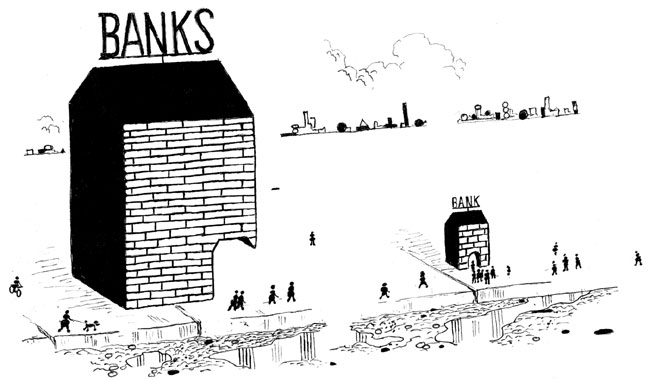Big editorial by Paul Volcker in today’s NYT:
“The phrase “too big to fail” has entered into our everyday vocabulary. It carries the implication that really large, complex and highly interconnected financial institutions can count on public support at critical times. The sense of public outrage over seemingly unfair treatment is palpable. Beyond the emotion, the result is to provide those institutions with a competitive advantage in their financing, in their size and in their ability to take and absorb risks.
As things stand, the consequence will be to enhance incentives to risk-taking and leverage, with the implication of an even more fragile financial system. We need to find more effective fail-safe arrangements.
In approaching that challenge, we need to recognize that the basic operations of commercial banks are integral to a well-functioning private financial system. It is those institutions, after all, that manage and protect the basic payments systems upon which we all depend. More broadly, they provide the essential intermediating function of matching the need for safe and readily available depositories for liquid funds with the need for reliable sources of credit for businesses, individuals and governments.
Combining those essential functions unavoidably entails risk, sometimes substantial risk. That is why Adam Smith more than 200 years ago advocated keeping banks small. Then an individual failure would not be so destructive for the economy. That approach does not really seem feasible in today’s world, not given the size of businesses, the substantial investment required in technology and the national and international reach required.”
The full piece though long, is worth the time to read.
>
Source:
How to Reform Our Financial System
PAUL VOLCKER
NYT, January 30, 2010
http://www.nytimes.com/2010/01/31/opinion/31volcker.html



What's been said:
Discussions found on the web: